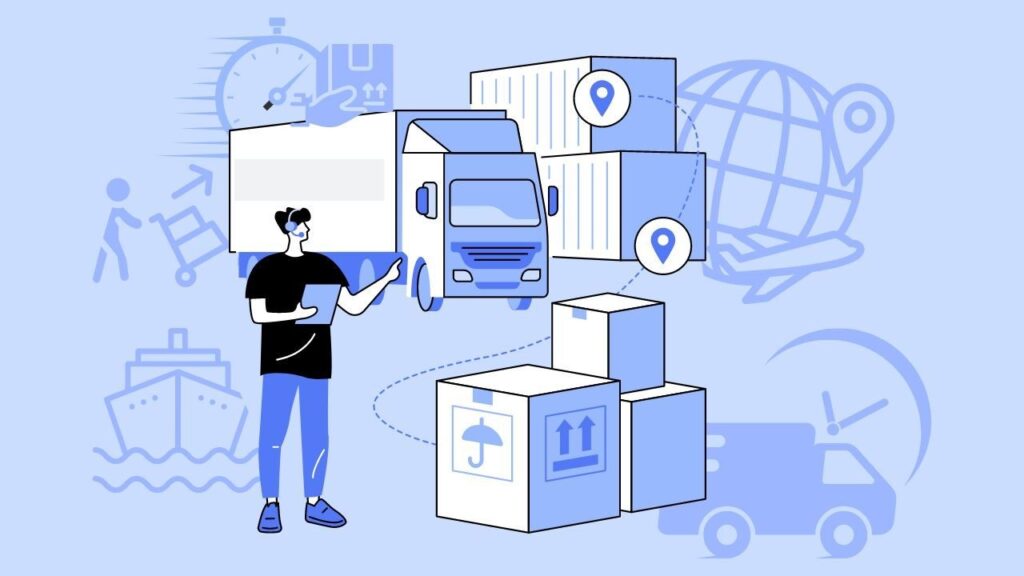E-commerce continues to explode in popularity, with retail giants like Amazon leading the way, but running an online store requires significant time, effort, and technical know-how. This leaves many entrepreneurs — especially busy professionals with full-time jobs — sitting on the sidelines.
However, the emergence of automated dropshipping is changing the game. This inventory-free fulfillment method allows anyone to leverage automation to simplify e-commerce operations.
In automated dropshipping, store owners integrate with suppliers that handle product inventory, packing, and shipping, so they can focus on high-level marketing and management. This takes a huge burden off entrepreneurs’ shoulders, as they no longer need to manually process each order or deal with holding and shipping inventory.
The promise of automated dropshipping

Automated dropshipping is transforming inventory-free commerce into a streamlined, hands-free business model. By integrating sales channels with supplier order systems, the entire fulfillment process becomes automated. When a customer purchases a product, order information seamlessly flows to the supplier to package and ship on the seller’s behalf.
Sophisticated dropshipping automation software has emerged to optimize workflows. These platforms provide access to vast product catalogs, while automatically managing ordering, tracking, returns, and other logistics automatically, liberating sellers from routine customer service and operations tasks.
By leveraging automation, dropshipping creates a promising e-commerce on-ramp, allowing anyone to own and operate an online store without the grind of manual order processing and fulfillment. In fact, “adopting automation in sales and marketing can increase lead quantity by 80 percent and improve efficiency and marketing ROI by 45 percent.” This hands-free model represents the future of streamlined, simplified e-commerce.
The benefits of hands-free e-commerce
Automating order fulfillment confers significant advantages that enable lean, scalable online businesses. Sellers realize greater flexibility to focus on high-level growth initiatives. Here are just a handful of benefits of hands-free e-commerce:
- More free time: With suppliers fulfilling orders, customer service and shipping tasks are eliminated, liberating sellers to dedicate time to more impactful endeavors like marketing campaigns, branding, and platform optimization. Automation grants freedom from daily operational minutiae.
- Lower startup costs: Automated dropshipping circumvents the need to purchase inventory outright or invest in warehouse infrastructure. By leveraging supplier networks, overhead is minimized, reducing barriers to launching an e-commerce venture.
- Inventory and supply chain flexibility: Sellers can easily modify product offerings without being constrained by existing inventory. Automation provides access to vast supplier catalogs spanning many niches, allowing rapid adaptation to market demands.
- Scalability: Order fulfillment automation enables efficient scaling up of sales. With suppliers handling packaging and shipping, businesses can rapidly expand without logistical bottlenecks. This streamlined framework maximizes growth potential.
By leveraging these benefits, hands-free commerce promises a new era of agile, cost-effective online retail unencumbered by routine tasks. Automation provides a catalyst to transform e-commerce into a streamlined enterprise able to deftly adapt and scale.
With the burden of logistics lifted, sellers can pursue more ambitious strategies and realize their full business potential. The efficiencies of automated dropshipping portend the future of modern digital commerce.
The future of e-commerce automation

The future of e-commerce is predicted to see even greater adoption of automation to streamline operations. Advances in artificial intelligence and supply chain technologies will enable automation to become more intuitive and responsive to individual customer needs.
For example, AI-powered platforms may be able to dynamically customize product recommendations, marketing content, and checkout experiences for every user. Chatbots could even mimic human sales assistants to provide personalized service.
Behind the scenes, automation will coordinate end-to-end logistics. Suppliers, warehouses, and carriers will integrate systems to enable completely automated packaging, inventory management, shipping, and tracking. Emerging technologies like blockchain could additionally improve supply chain transparency, creating highly efficient order fulfillment that requiresing little to no manual oversight.
Automation will also take over more repetitive customer service and marketing tasks. Chatbots and AI will be capable of handling many common customer inquiries, order issues, and updates automatically. Targeted, personalized marketing content can also be automated and tailored to individual interests, allowing sellers to reduce time spent on daily customer service and marketing drudgery.
In terms of analytics, automated reporting will generate extensive data, providing sellers with keen insights into all aspects of their business. From granular customer behavior trends to big-picture inventory costs, sellers will have access to detailed analytics to inform data-driven decisions, empowering strategies to maximize operational efficiency and sales.
In essence, the future of e-commerce lies in technology automating the legwork so sellers can focus on innovation, long-term strategy, and customer experience. Online selling will become even more streamlined, as automation enables new business models powered by the latest AI. Virtually every aspect of e-commerce stands to become more efficient, accessible, and profitable with advances in automation.




